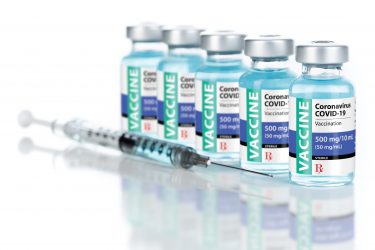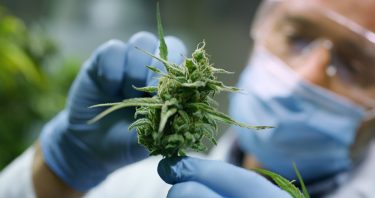The Editors’ views: European Pharmaceutical Review’s 2020 round-up
Posted: 14 December 2020 | Hannah Balfour (European Pharmaceutical Review), Victoria Rees (European Pharmaceutical Review) | No comments yet
Junior Editors of European Pharmaceutical Review, Hannah Balfour and Victoria Rees, discuss some of the most noteworthy news and announcements from this year.


Hannah Balfour


Hannah Balfour
Junior Editor at European Pharmaceutical Review.
This year has been… interesting. While UK residents entered 2020 expecting nothing more significant than Brexit, COVID-19 has knocked us all for six. However, despite the hardships of the pandemic, it is undeniable that the novel coronavirus has pushed pharmaceutical R&D further than ever before, giving the industry a once-in-a-lifetime opportunity to showcase its skills and rebuild its reputation.
In my opinion, the pandemic has brought two key concepts to the fore, without which we would not have the first COVID-19 vaccine approved, if only temporarily, for use. To me, 2020 has been the year of pharma collaboration and innovation – something that has never been seen before.
In the past, pharma companies (and big pharma in particular) have been extremely secretive – and the market intensely competitive. While the latter may never change, the challenges of the pandemic forced a new approach to information sharing. Perhaps the most notable collaboration this year was between Pfizer and BioNTech in the development of their mRNA vaccine candidate, BNT162b2, which has now become the first COVID-19 vaccine in the world to receive Emergency Use Authorisation and is already being administered to residents in the UK. For me, this approval is one of the most important stories we have reported on all year at EPR.
While some may be suggesting that this will draw a line under COVID, and that the end of the pandemic is in sight, the pharma industry knows there is still so much more to come.


Firstly, given the numerous challenges associated with the distribution and storage of the BNT162b2 vaccine, there is space on the market for other candidates to flourish, such as those that would not require such stringent distribution and storage methods or vaccine candidates that show promise in populations currently not approved to receive BNT162b2, like children under 16 and pregnant women.
Additionally, vaccine production, distribution and administration will take time. With so many needing multiple doses of vaccine, the wait to receive one will be long; and so therapeutics that can help ease the burden of COVID-19 until the population is better protected are still essential.
This brings me on to innovation, which 2020 has been full of – both at home and in the lab. It is worth noting that the BNT162b2 vaccine and many other promising candidates currently under regulatory review are new technologies – never before approved for use in humans. Earlier this year, John Liddell, the Chief Technologist at the UK Centre for Process Innovation (CPI), explained why COVID-19 turned vaccine developers towards new technologies in an article titled ‘Comparison of new vaccine approaches – COVID-19’, published in EPR Issue 3 2020. He cited specificity, safety and speed of response as the primary drivers behind the use of mRNA and virally-vectored vaccines to address the pandemic. For those seeking to understand how innovation has been at the heart of the pharma pandemic response, or to better understand the platforms upon which many COVID-19 vaccines are based, this article is a definite must-read.
Victoria Rees


Victoria Rees
Junior Editor at European Pharmaceutical Review.
We have witnessed a colossal effort from the pharmaceutical industry this year, which quickly mobilised to respond to the COVID-19 pandemic. While this is still ongoing, it is reassuring to see progress being made, with vaccines and therapeutics gaining emergency approvals around the world.
With so much attention being paid to those infected by SARS-CoV-2, many researchers have been investigating the medicines taken by patients before hospitalisation that correlated with a reduced risk of severe disease or death. In October, a team from the University of Maryland School of Medicine found that hospitalised COVID-19 patients taking a daily dose of aspirin to protect against cardiovascular disease had a significantly lower risk of complications and death compared to those who were not taking aspirin. “This is a critical finding that needs to be confirmed through a randomised clinical trial,” said study leader Assistant Professor Jonathan Chow. “If our finding is confirmed, it would make aspirin the first widely available, over-the-counter medication to reduce mortality in COVID-19 patients.”
Another study revealed that osteoporosis treatments including denosumab, zoledronate and calcium may protect patients against COVID-19 and could result in a 30 to 40 percent reduction in the rate of infection. Most recently, researchers discovered that women taking metformin prior to hospitalisation had a significantly reduced risk of death from COVID-19 – read more about it here.
This year, we also saw innovation in the field of drug delivery, with a novel microneedle developed that successfully administered a COVID-19 vaccine to mice. The team, from the University of Pittsburgh School of Medicine, US, created a fingertip-sized patch that induces the production of antibodies specific to SARS-CoV-2 at quantities thought to be sufficient for neutralising the virus. Meanwhile, scientists from the University of Birmingham developed a nasal spray using compounds already approved by various regulatory bodies. Testing their drug delivery system in cell cultures, they say this could provide protection to patients against COVID-19.
In February, I spoke with Adrian van den Hoven, Director General of Medicines for Europe, to discover how drug shortages can impact patients and the pharmaceutical industry. He explained how to prevent and reduce the effects of medicinal scarcities in the EU: “We think it makes sense to encourage more companies to enter those markets so you have more manufacturers competing and supplying.” Mentioning the impact of Brexit, van den Hoven said that there are agreements in place to maintain the free flow of medicines between the EU and UK; however, with the deadline drawing ever closer, we will soon see whether this will mitigate any potential shortages.


In August, US President Donald Trump announced the ‘Buy American’ executive order, with the aim of securing a more stable and secure drug supply chain for the country. I investigated what the executive order would mean for drug manufacturers in the US and globally – click here to read the article.
With the end of the year approaching, it is easy to pinpoint some of the landmark successes that the pharmaceutical and biopharmaceutical industries have achieved in 2020. Hopefully, next year will bring even more advancements that will improve the lives of patients worldwide.
Related topics
Biologics, Cannabinoids, Drug Development, Drug Manufacturing, Drug Safety, Industry Insight, Regulation & Legislation, Research & Development (R&D), Therapeutics, Vaccine Technology, Vaccines, Viruses
Related organisations
BioNTech SE, Pfizer Inc., University of Birmingham, University of Maryland School of Medicine, University of Pittsburgh School of Medicine
Related drugs
Related people
Adrian van den Hoven, Assistant Professor Jonathan Chow, Dr Andy Yates, John Liddell (CPI), President Donald Trump








